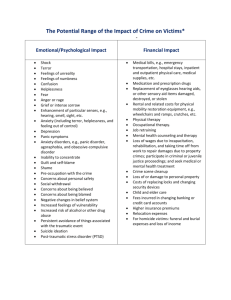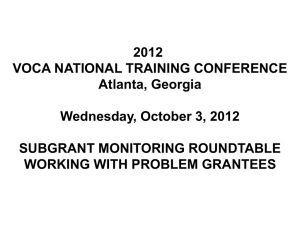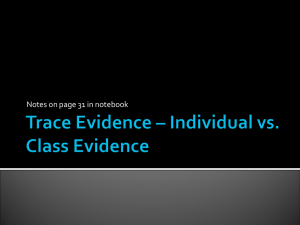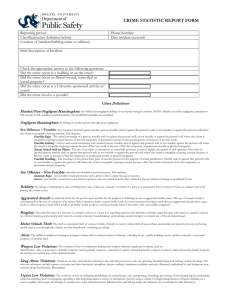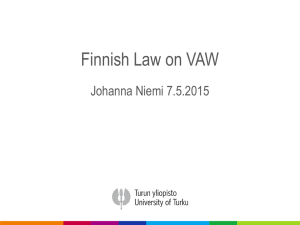Presentation
advertisement
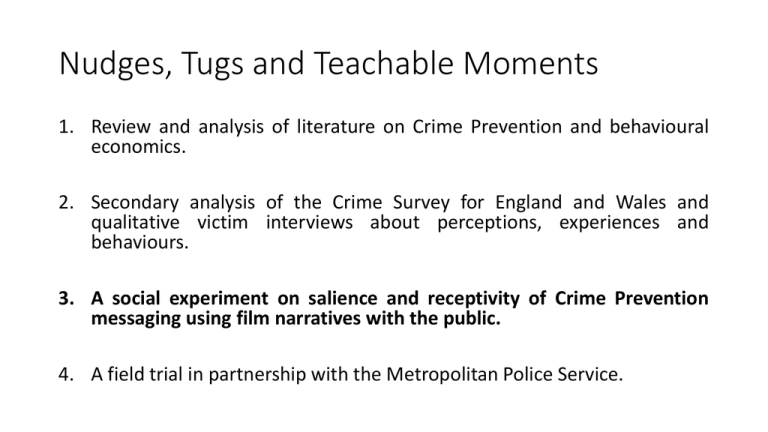
Nudges, Tugs and Teachable Moments 1. Review and analysis of literature on Crime Prevention and behavioural economics. 2. Secondary analysis of the Crime Survey for England and Wales and qualitative victim interviews about perceptions, experiences and behaviours. 3. A social experiment on salience and receptivity of Crime Prevention messaging using film narratives with the public. 4. A field trial in partnership with the Metropolitan Police Service. 8 Films in Total Behavioural Crime Prevention: Why? • More focus on the offender than victim or ‘potential victim’. • Behaviour change to modify situation rather than situation change to modify behaviour. • Fear framing messages to the public about crime. • With less police, more and better communication. • Victim agency only comes to the fore post-crime as “Harm Reduction” e.g. Restorative Justice, Victim Support. Behavioural Crime Prevention: How? • Where can we ‘nudge’ people into taking protective behavioural measures for themselves or others? • But is nudging enough? Where do we need to compel (‘tug’) or intervene at an appropriate time (‘teachable moment’). • “Responsibility” associated with Victim Blaming. • BCP explores “Competency” alongside responsibility: how far someone feels they can achieve the desired behavioural change. Think about how many Crime Prevention campaigns depend on scaring people to change their behaviour. What if fear isn’t the best way to get them to change what they do? Thank you No cats were harmed in the making of the films. If you would like any further information or if you feel affected by these films please talk to us or contact us on whatworks@cardiff.ac.uk

